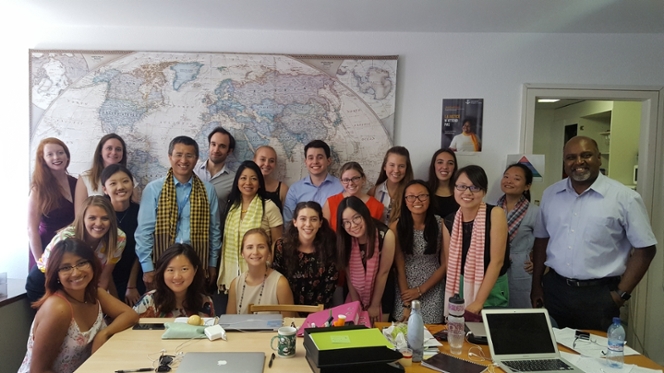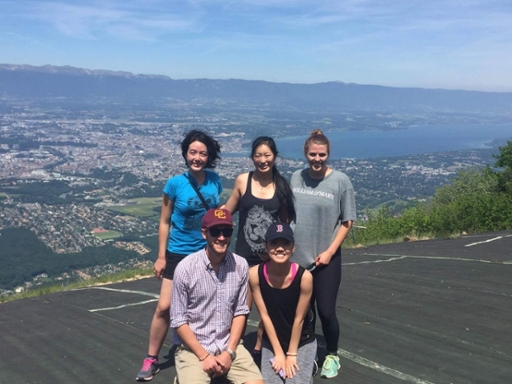Neighboring Up

In Texas, women have a longstanding tradition that I have always admired of creating communities for themselves by "neighboring up" to one another, or reaching out to make connections with each other and embracing newcomers with kindness. Growing up in Dallas and being raised by Texas women, I have always been aware of the particular bond that Texas women share with each other, but I have never had a term for it until a few years ago when I read a book by Sarah Bird called "A Love Letter to Texas Women." As Bird describes it, neighboring up is an old term originating from Texas's past when the landscape mostly comprised rural ranches. As women settled in with their families on these isolated stretches of land in the scorching Texas sun, they quickly learned that to survive, they would have to befriend their neighbors—they would have to neighbor up.
Neighboring up has always been the way Texas women care for and express love for each other, and as the landscape of Texas has changed, neighboring up has evolved to represent the independence of women as a community as well as a support network during times of adversity. Now, neighboring up exists among both men and women mainly in the form of small gestures: making a meal for a sick friend, bringing cookies to a new neighbor who just moved in, lending money to a friend without expecting anything in return.

This week, as I waited impatiently for the perpetually late No. 9 bus to take me home after a particularly long day at work, I watched people board their busses and listened to the chatter all around me. I heard people speaking in French, German, Spanish, and Italian expressing their feelings about their day to each other. And as I listened to these multilingual exchanges, I noticed a woman running with a baby stroller and a small child toward a bus that had already closed its doors and was about to leave the stop. It was clear she was not going to make the bus, but then a young man standing nearby ran to the bus, pressed the button to open the door for the woman, and held it open for her until she was able to safely board the bus with her children.
Watching this sweet interaction, I was struck by the fact that, although not everyone spoke the same languages and the man and woman at the bus stop did not know each other, they were all neighboring up. They were relying on each other to get through the day; they were expressing a sense of community and embracing each other, in spite of their differences.
Geneva and Texas, my home state, could not be more different, but they do share one thing in common: neighboring up. Geneva is a city full of people from all corners of the world with wildly different backgrounds. Many people, like myself, only pass through the city for the summer, and many others commute to and from the city to work each day. Yet despite the city's diversity, and perhaps because of it, people embrace newcomers and look out for one another.
I am learning that in the international community, just as in Geneva, our neighbors extend beyond the borders of our own countries. I have experienced this firsthand in Geneva. My coworkers at IBJ have welcomed me with overwhelming grace. They have opened their homes to me, invited me out to explore Switzerland with them, and tried, perhaps in vain, to teach me French.

IBJ itself operates in much the same way. For my work on the Myanmar Manual, I am collaborating with attorneys across three continents to combine our knowledge to empower our neighbors in Myanmar to protect due process rights there. Soon, defense attorneys in the country will gather together to work toward their ideal vision of the Burmese criminal justice system. They will rely on the expertise of their local colleagues to enhance their own skills. And as they begin to form relationships of trust with each other, they assert their independence as a group and change the culture of Myanmar for generations to come.
In Bird's book, she explains the cultural effect of neighboring up like this: "These rural transplants [to Texas] brought with them the wisdom passed down to each Texas Woman by her pioneering foremothers: that her survival and the survival of her children, might easily depend upon the strangers whom Divine Providence had selected to be her neighbors . . . . [This] was the legacy handed down by women who had risked their lives to ride or walk the long, dangerous miles to the nearest neighbor woman's house." As our Burmese colleagues meet with each other at the training in July, they will form connections that will have an enduring impact on the legal system. They are the pioneers who will make the the treacherous journey toward a more equitable and fair judicial system, and they will pass this wisdom on to future lawyers in their country, and with each passing, the journey will get a little easier. As the landscape of Myanmar changes, defense attorneys there will reach out to their neighbors in need and share their hard-fought knowledge.
I am so proud and thankful to be able to neighbor up to my colleagues in Myanmar and to be a part of the community that lightens their load on their pioneering journey.